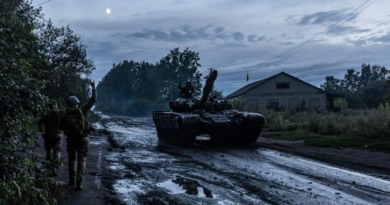President Obama has shared his top tips that kept him positive during times of crisis
President Barack Obama is known and loved for his message of hope—but has admitted that “of course” sometimes the weight of the world is enough to crush it.
And although the Democrat’s to-do list may not look the same as the average employee, he still had some advice for people on how to remain motivated in periods of flux.
Speaking with comedian Hasan Minhaj for an interview posted on YouTube last week, President Obama said issues like climate change should cause “some distress and anxiety”.
“Objectively when you see an entire school terrified because a gunman is walking in with weapons of war, if your heart’s not breaking then something’s wrong with you,” he said.
“If you think that’s normal then you really do need some therapy.”
Despite the difficulty of facing down such challenges, the former president said his aim is not to be “blind” to problems like flooding and forest fires, and combats his feelings of fear in two ways.
The first, he said, is to remind himself of context.
“I do try to maintain some perspective,” he explained. “Ask your parents or your grandparents whether this is the worst that they’ve seen.
“I’m pretty sure that between World War One, World War Two, the Great Depression, Jim Crow, lynchings, partitioning the Indian subcontinent, the killing fields in Cambodia—we can go through some lists of moments that are significantly worse than this,” President Obama said.
Look for the silver linings
Despite often feeling “overwhelmed” by the problems facing humanity, President Obama revealed he also advises his own children to try and have an optimistic outlook—saying this is what “sustains [his] spirit.”
The father-of-two revealed that his elder daughter, Malia, had come to him seeking advice on how to stay motivated trying to end global warming.
He said young people are beginning to question “What’s the point? Because the world is burning.”
“I said to [Malia] we may not be able to cap temperature rise to 2C, but here’s the thing if we work really hard we may be able to cap it at 2.5C instead of 3C. Or 3 instead of 3.5C.
“That extra centigrade might mean the difference between whether Bangladesh is underwater. It might make the difference as to whether 100 million people have to migrate or only a few. That matters, it makes a difference.
“It’s worth fighting for. That’s a lot of people.”
Indeed, the 44th President’s optimistic outlook may not only better humanity but also the individuals who are inspired to think with a glass half-full approach.
Multiple studies have found that a more positive outlook not only can improve individual’s mental health but also their physical health and their quality of life.
Dr Lewina Lee, a clinical psychologist at the Veterans Affairs Boston Healthcare System and assistant professor of psychiatry at Boston University, told The Guardian last year: “A more optimistic thought does not mean being Pollyanna-ish or ignoring risks, which is a common misconception about optimism.
“It may involve acknowledging our strengths, past examples of success, and areas over which we have control, so that we can arrive at a more positive and confident outlook.”
Lessons for the next generation
President Obama, who is now 61, added a “challenge” is presented in the fact that younger people—and people of Obama’s own generation—grew up in an “anomalous” stretch of time in which “for the most part” the trajectory of humanity was on the up.
Speaking on politics but also the “course of the world”, Obama encouraged younger people to try and have a longer-term view of the small decisions they were making and the impact it may have—even if it feels futile at the moment.
He described humanity as being on an ocean liner or an aircraft carrier: “If you’re the captain and you’re steering that load, you can steer it with all your might and you might move it a degree.
“Within the time frame of three years, four years, five years if you screw up you might get into an iceberg. You can steer it off course, but if you’re steering it in a better course by a degree or two you may not see it for miles, and sometimes you don’t know until you look back the you’re in a better place than you would’ve been.”



